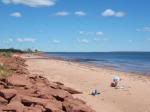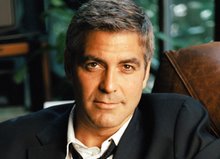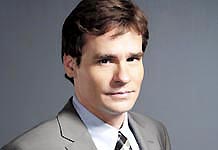A delayed book review from Paris in July. I actually read The Paris Wife in July, but was then inspired to read A Moveable Feast by Hemingway. It is still a popular book, because I had to wait at the library until August. I would recommend that these books be read together and I wanted to review them together. I had very little prior knowledge about Ernest Hemingway, having never read any of his books. I knew he was very masculine with the wars and the bull-fighting, and that his writing themes would most likely not appeal to me. I was aware of him as a cultural icon. I did see Midnight in Paris, with all the artists in 1920s Paris, and read Waiting for Gertrude by Bill Richardson.
The Paris Wife by Paula McLain, 320 pages
Hadley Richardson, Ernest Hemingway's first wife, the Paris wife, narrates their life together during the five years or so that they were married. Telling the story from her perspective was a nice twist. There are oodles of books about Ernest that McLain was able to research about their life. There was a real romantic quality to their life, living the artist life, poor, in Paris. Ernest and Hadley did what they wanted, travelled around, and worked very little but still managed to get by. They were happy. I really liked this book. I liked the view of that lifestyle, even though it was so hedonistic, so self-indulgent. It makes you wonder about how art is produced - do the artists have to be mad? Does it take that suffering to produce greatness? It was hard to like Ernest, for how he treated Hadley, but he seemed to truly love her, and in his memoirs of Paris, A Moveable Feast, he touches on some regret about Hadley.
This is the type of biographical fiction I like, based on real facts but brought to fictional life with clear readable prose. Clearly McLain did her research, and reading A Moveable Feast afterward made me like The Paris Wife even more.
A Moveable Feast, by Ernest Hemingway, 213 pages
A series of essays, published after Hemingway's death, about his time in Paris in the 1920s before his first novel was published. So, the same time as The Paris Wife. Ernest writes about the people, and his writing process, and his family. He devotes some essays to Ford Maddox Ford, and F Scott Fitzgerald and Zelda and Gertrude Stein. The essays are in some ways vague, with no linear connection, other than his thoughts and impressions. Having read The Paris Wife, I knew what he was writing about most of the time. It impressed me even more about how McLain took that knowledge and wrote so clearly about their lives.
I also appreciated Ernest's writing style after reading about the process he was going through, and what he was trying to achieve. I think I am ready to read a novel by Hemingway, based on the knowledge I know have about him. I am also ready to visit Paris, if it could be the Paris of Hemingway. Kind of like Owen Wilson did in Midnight in Paris.
Monday, September 3, 2012
BOOK: The Paris Wife and A Moveable Feast
2012-09-03T21:51:00-04:00
raidergirl3
Subscribe to:
Post Comments (Atom)








